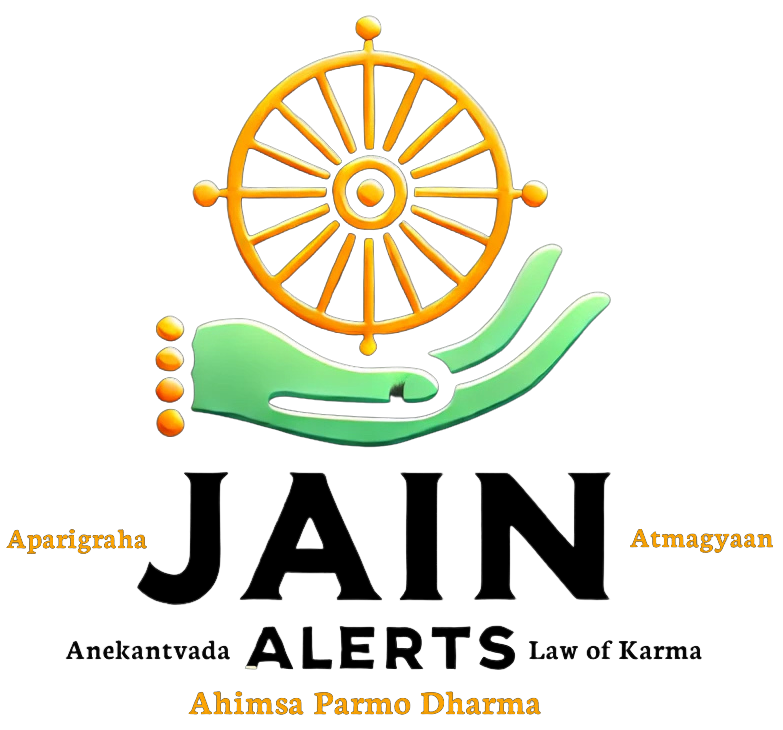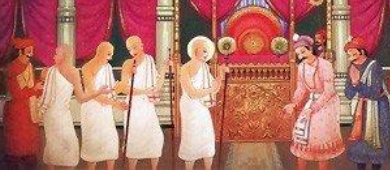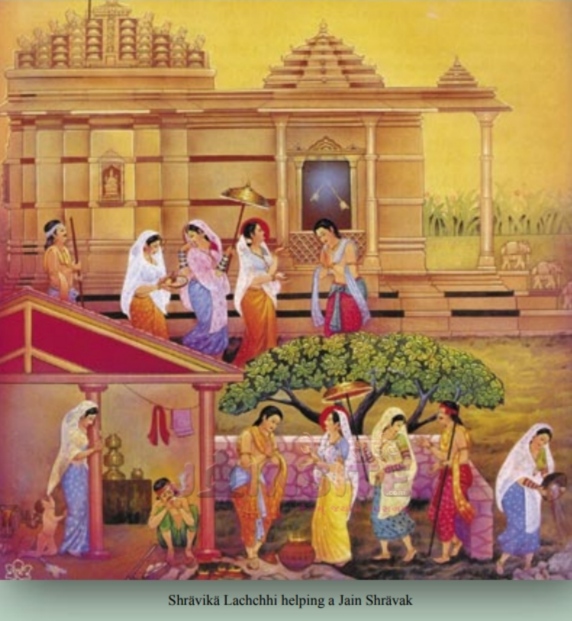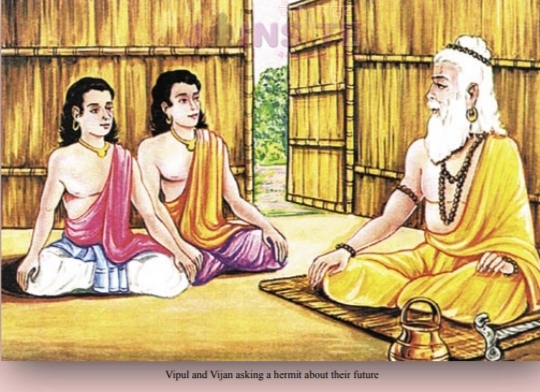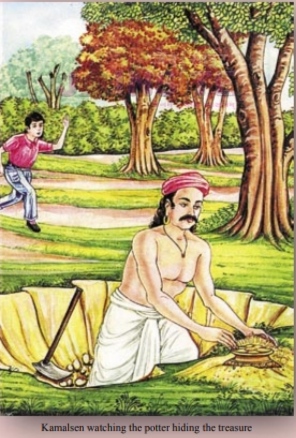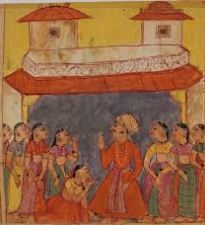Emperor Akbar’s Encounter with Jain Saint Hirvijaysuri
सम्राट अकबर की जैन संत हिरविजयसूरी से मुठभेड़
एक बार बादशाह अकबर ने फ़तेहपुर सीकरी में अपनी शाही बालकनी से मुख्य सड़क का अवलोकन किया। उन्होंने एक भव्य जुलूस देखा, जिसके केंद्र में चंपा नाम की एक जैन महिला थी, जो शानदार पोशाक में सजी हुई थी। पूछताछ करने पर, उन्हें पता चला कि चंपा ने छह महीने तक उपवास किया था, सूर्योदय से सूर्यास्त तक केवल उबला हुआ पानी पीकर, जैन संत गुरु हिरविजयसूरी के आशीर्वाद को अपनी सहनशक्ति का श्रेय दिया। अहमदाबाद के सूबेदार और अन्य जैन आम लोगों ने जैन धर्म के हितों को बढ़ावा देने के लिए हिरविजयसूरी से अकबर से मिलने का आग्रह किया।
1582 ई. में, हिरविजयसूरी अर्जुन ठाकोर जैसे व्यक्तियों को धार्मिक शिक्षा देते हुए गांधार बंदरगाह से रवाना हुए। 1583 ई. में ज्येष्ठ महीने के 13वें दिन फ़तेहपुर पहुँचने पर, हिरविजयसूरी का अकबर ने स्वागत किया, जिन्होंने अपने राजकुमारों के साथ श्रद्धा दिखाई। उनके सम्मान में भव्य कालीन बिछाए जाने के बावजूद, हिरविजयसूरी ने कीड़ों को नुकसान पहुंचाने के खिलाफ जैन निषेधों का हवाला देते हुए, उन पर चलने से इनकार कर दिया।
हिरविजयसूरी की विनम्रता से प्रभावित होकर अकबर ने ज्योतिषीय अंतर्दृष्टि की मांग की, जिसे हिरविजयसूरी ने विनम्रतापूर्वक यह कहते हुए अस्वीकार कर दिया कि संत ज्ञान और आनंद का अनुसरण करते हैं, न कि सांसारिक भविष्यवाणियों का। अकबर ने सोने और चांदी की पेशकश की, लेकिन हिरविजयसूरी ने इनकार कर दिया, इसके बजाय पिंजरे में बंद जानवरों की मुक्ति और पर्यूषण त्योहारों के दौरान हिंसा को रोकने की वकालत की।
अकबर ने हिरविजयसूरी की सलाह पर ध्यान दिया, पर्यूषण को चार दिनों के लिए बढ़ा दिया और पशु वध पर बारह दिनों के लिए प्रतिबंध लगा दिया। करुणा की संस्कृति को बढ़ावा देते हुए, उनके आदेश का विस्तार उनके साम्राज्य में हुआ। विक्रम संवत 1640 में हिरविजयसूरि को जगद्गुरु पद पर प्रतिष्ठित किया गया। उनकी शिक्षाओं ने आगरा, ग्वालियर और उससे आगे को प्रभावित किया और लोगों को मांसाहार और शराब छोड़ने के लिए प्रेरित किया।
Once, Emperor Akbar gazed upon the main road from his royal balcony in Fatehpur Sikri. He witnessed a grand procession, with a Jain woman named Champa at its center, adorned in splendid attire. Upon inquiry, he discovered that Champa had observed a six-month fast, consuming only boiled water from sunrise to sunset, attributing her endurance to the blessings of Jain saint Guru Hirvijaysuri. The subedar of Ahmedabad and other Jain laypeople urged Hirvijaysuri to visit Akbar to promote Jainism’s interests.
In 1582, Hirvijaysuri departed from Gandhar port, imparting religious teachings to individuals like Arjun Thakore. Upon his arrival in Fatehpur on the 13th day of the Jyeshta month in 1583, Akbar greeted him respectfully, accompanied by his princes. Despite the lavish carpets laid out in his honor, Hirvijaysuri refused to tread upon them, citing Jain prohibitions against harming insects.
Impressed by Hirvijaysuri’s humility, Akbar sought astrological insights, which Hirvijaysuri humbly declined, stating that saints pursued knowledge and bliss, not worldly predictions. Akbar offered gold and silver, but Hirvijaysuri refused, instead advocating for the liberation of caged animals and the cessation of violence during Paryushan festivals.
Akbar heeded Hirvijaysuri’s counsel, extending Paryushan by four days and banning animal slaughter for twelve days. His decree extended across his empire, fostering a culture of compassion. In Vikram Samvat 1640, Hirvijaysuri was honored as Jagadguru. His teachings influenced Agra, Gwalior, and beyond, inspiring multitudes to renounce non-vegetarianism and alcoholism.
You can explore the fascinating stories of all Jain 24 Tirthankaras, Jain Stories Exploring Jain Symbols on the Jain Alerts website. Delve into their lives and teachings to gain insights into Jain philosophy and spirituality.
